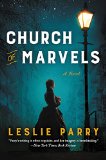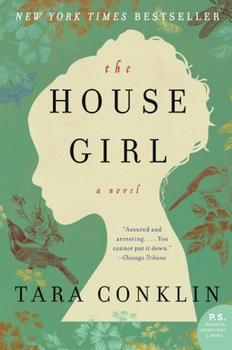Summary | Excerpt | Reading Guide | Reviews | Beyond the book | Read-Alikes | Genres & Themes | Author Bio

Winter Sisters begins with an epic blizzard (see Beyond the Book) hitting the entire Northeast of the USA in January 1879. In upstate New York, Dr. Mary Sutter-Stipp refuses to believe that Claire and Emma O'Donnell, the daughters of her good friends who died in the storm, are anything but missing. Then, weeks after everyone, Mary included, have given them up for dead, the two girls suddenly turn up. Where they were and what they endured when they were missing may have more disastrous effects on the city than that fateful deadly storm and its subsequent ruinous flood.
I should mention here that this is essentially a sequel to Robin Oliveira's 2010 novel My Name is Mary Sutter, which I have not read. Mary is a midwife as the novel begins, but wants to be a surgeon and so, against many odds, she travels to Washington DC to tend to wounded Civil War soldiers and fulfill her dream. While I noticed a couple of holes here and there regarding some recurring characters, I didn't feel like I'd missed much by jumping straight to Winter Sisters. However, the novel takes a while to find its stride, making the first few chapters drag a bit. But when Oliveira brings us to Emma and Claire, things really pick up and I was enrapt until nearly the end of the book. The very ending feels a bit too subdued in atmosphere, with some overly simplified and convenient ways of tying up the loose ends.
Oliveira employs all the basic mechanics of a thriller here, starting with a tragedy – the blizzard and the disappearance of the two girls. From there, she carefully fleshes out the story, while pumping up the pace until we're practically on the edges of our seats to find out what happens next. This is exactly what a good thriller should do, and Oliveira sweeps us along to one climax then shifts down only to throw us a second one, before moving towards the conclusion.
Oliveira's style of writing fits the era quite nicely, with a certain level of propriety that stops well short of being stodgy. Without being overly lyrical or poetic, she draws a picture of Albany with many well-placed hints and carefully drawn descriptions of various locations that complement the story and characters. Mind you, some of the characters here are far from respectable, and the voices that Oliveira gives them reflect their social status perfectly. In fact, there was one person that I particularly fell in love with, despite the cliché of her being a "whore with a heart of gold." If Oliveira is thinking of writing a third book in this series, I would respectfully suggest that her next major protagonist be this character!
I truly enjoyed Winter Sisters; it is very well written, has sympathetic characters (and hateful antagonists), and a riveting (if sometimes unpleasant) plot. I think it deserves a solid four out of five stars.
![]() This review was originally published in The BookBrowse Review in April 2018, and has been updated for the
February 2019 edition.
Click here to go to this issue.
This review was originally published in The BookBrowse Review in April 2018, and has been updated for the
February 2019 edition.
Click here to go to this issue.

If you liked Winter Sisters, try these:

by Leslie Parry
Published 2016
A ravishing first novel, set in vibrant, tumultuous turn-of-the-century New York City, where the lives of four outsiders become entwined, bringing irrevocable change to them all.

by Tara Conklin
Published 2013
A stunning debut novel of love, family, and justice that intertwines the stories of an escaped house slave in 1852 Virginia and ambitious young lawyer in contemporary New York
Your guide toexceptional books
BookBrowse seeks out and recommends the best in contemporary fiction and nonfiction—books that not only engage and entertain but also deepen our understanding of ourselves and the world around us.